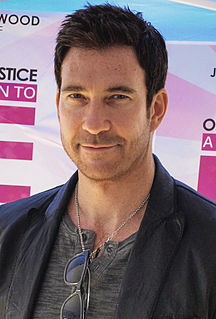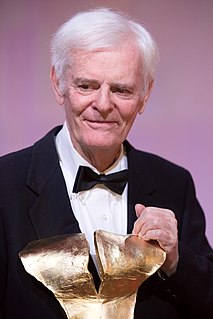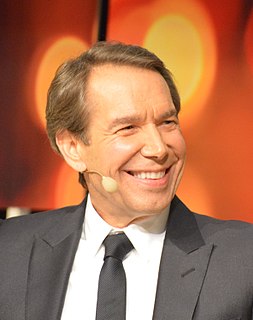A Quote by John Burnside
Andy Brown is one of our most interesting and exciting younger poets. With its love of ideas and language, his work demonstrates that there need be no barriers in poetry; that the philosophical, the lyrical and the playful can be combined in work of assured and generous vision.
Related Quotes
we need poetry most at those moments when life astounds us with losses, gains, or celebrations. We need it most when we are most hurt, most happy, most downcast, most jubilant. Poetry is the language we speak in times of greatest need. And the fact that it is an endangered species in our culture tells us that we are in deep trouble.
I believe that Ryan Murphy is a genius. His instincts remind me of Andy Warhol. I recently went to the Warhol museum in Pittsburgh, and you can see a lot of echoes of Andy in Ryan’s work. Like Andy, Ryan’s finger is so on the pulse of culture that he’s ahead of culture. Their aesthetic and their vision of the world are very similar.
I believe that Ryan Murphy is a genius. His instincts remind me of Andy Warhol. I recently went to the Warhol museum in Pittsburgh, and you can see a lot of echoes of Andy in Ryan's work. Like Andy, Ryan's finger is so on the pulse of culture that he's ahead of culture. Their aesthetic and their vision of the world are very similar.
I have a tape recorder, and I just sing into it. I like to write that way. Sometimes I'll just get melodic ideas, and then I'll go home and sit down and add the lyrics. Or sometimes I'll get a lyric idea that I love. Usually it's pretty combined. Usually I get some kind of a lyrical concept and a melody and work with that.
Andy wasn't capable of any complicated thoughts or ideas. Ideas need a verb and a noun, a subject. Andy spoke in a kind of stumbling staccato. You had to finish sentences for him. So Andy operated through people who could do things for him. He wished things into happening, things he himself couldn't do.





































